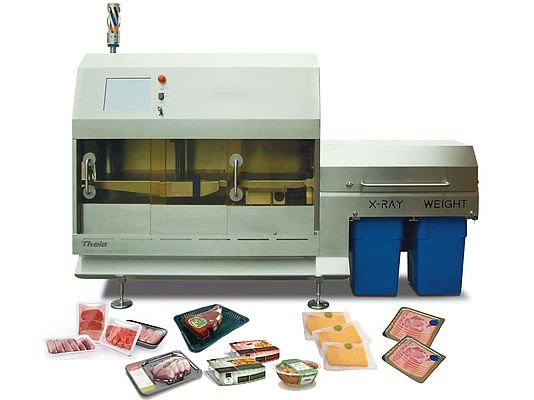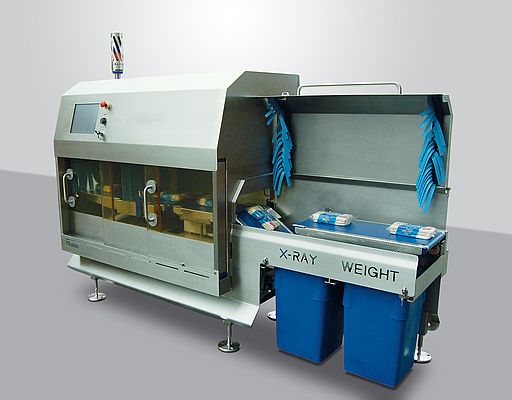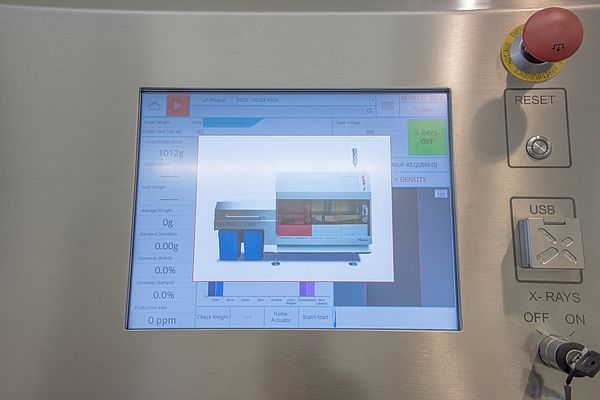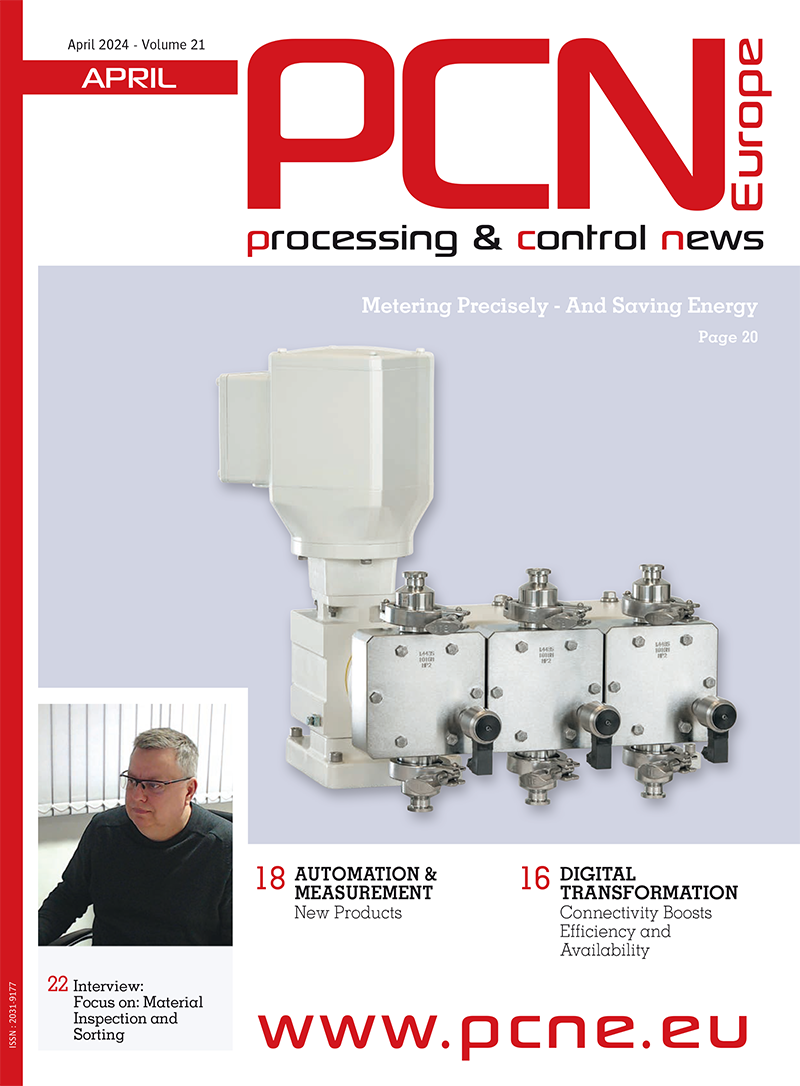Combination systems are becoming increasingly popular on food production lines, with the automated checkweighing market expected to escalate between now and 2024 . Despite a turnover of £140bn (accounting for 19% of all UK manufacturing income), UK food manufacturers face increasing pressures on profit margins. Input costs continue to rise which weigh heavily on the entire food supply chain. And despite the potential benefits of line efficiency, few FMCG manufacturers opt for full integrated inspection machinery on their lines.
Rather than operation separate units, Sparc is one of the few global food inspection specialists to have designed a truly integrated, single point control combination x-ray inspection and checkweigher. Sparc’s European Sales Manager Charlie Graham explains: “There are varying degrees of integration on the market. Ranging from complete mechanical and electronic integration - as Sparc does - to connected machines from two different suppliers which typically still operate independently with no cohesive reporting.”
Created for food manufacturers seeking to comply with regulatory codes of practice while improving line efficiency, the Theia ensures fast and accurate rejection of up to 200 out-of-tolerance or contaminated packs per minute. Keeping quality control front of mind, the Theia utilises Sparc’s tried and tested precision X-ray technology to inspect packaged food products and identify a variety of foreign materials such as metal, glass or bone. If a contaminant is detected, the product is sent to a dedicated lockable reject station. An in-line, servo driven reject system removes the need for compressed air, offering potential savings of up to £4,000 a year on running costs.
Detection with high resolution
By adopting automated adjustments and removing or minimising the need for human intervention, manufacturers of high-risk items (sliced meat and cheese, frozen products and convenience meals, etc.) benefit from a repeatable and consistent inspection process. The high resolution of the metal ceramic x-ray tubes allows the Theia to detect foreign materials with sensitivity levels that outperform any current technology, driving increased security and reducing the risk of costly product recalls.
Traceability on the Theia has been enhanced in a number of ways. To eliminate the safety concerns associated with x-ray systems, Sparc recently incorporated a protective high-density acrylic window. As a result, food debris, product accumulations and bottlenecks are instantly visible. Rather than carrying on unaware, operatives can halt production lines instantly, slide open the doors, clear and clean the conveyor, minimising disruption and reducing the likelihood of product damage.
The unique concept means that every aspect of the product handling is transparent. Charlie comments: “Having a clear side removes the mystery and fear factor, especially when there’s a stainless steel box with a big radiation sign on the side. And, most importantly for food manufacturers today, the system offers fully traceable paperless machine testing audits, making it one of the most transparent machines on the market today.”
Driving out food waste
According to WRAP’s Roadmap Progress report, between 2010 and 2016 food waste contributed 8-10% of total man-made greenhouse gas (GHG) emissions . And while supermarkets and households get a lot of flack for contributing to this, in fact producers and manufacturers can be the biggest culprits, wasting 1.8 million tonnes, reports WRAP. Some of the problem is compounded by increasingly high consumer expectations and retailer specifications. Yet, blame can also be apportioned to mechanical failures and inefficient weighing systems. Sparc Theia systems can address some of these issues. Housing a high-spec checkweighing station, the Theia systems process products at an accurate weight, offsetting the potential for both product giveaway and incomplete packages reaching the market.
As a single unit, the Theia has two reject bins to separate contaminant and weight rejects. If it’s the latter, the operator can simply rework the product and send it through to secondary packaging, diminishing the frequency of false rejects and waste. “This feature works in harmony with Theia's x-ray solution to deliver premium checkweighing performance in a simple-to-operate way. In some cases, our customers have reported a 55% reduction in product giveaway,” adds Charlie.
The combination system is remarkably compact, even when incorporating Sparc’s label inspection technology, Sparc Eye, which inspects products from both the top and bottom of the pack. Designed to eliminate emergency product recalls, the system automatically rejects any mislabelled items if errors are found and doesn’t require operator input at product changeover. The result - greater compliance with legislative food labelling requirements.
As with all Sparc equipment, a single, clear, touch-screen control panel offers constant feedback on operational elements including volume, weight and speed. Consequently, the unit is easily adapted to inspect different products, packs and sizes, and can be deployed at any stage in the manufacturing process. Utilising the principles of Industry 4.0, integrated data collection software provides instant live OEE data, reporting directly to production and Quality Assurance (QA) personnel.
“Ultimately, food safety and weight legislation is getting stricter all the time, while consumer expectations are on the rise. As a result, we recommend devoting the right resources to the inspection process,” concludes Charlie. “A long-term investment in proven equipment like our Theia system can go a long way to future-proofing against any errors such as contamination, poor labelling or rejection of underweight or overweight items.”



















